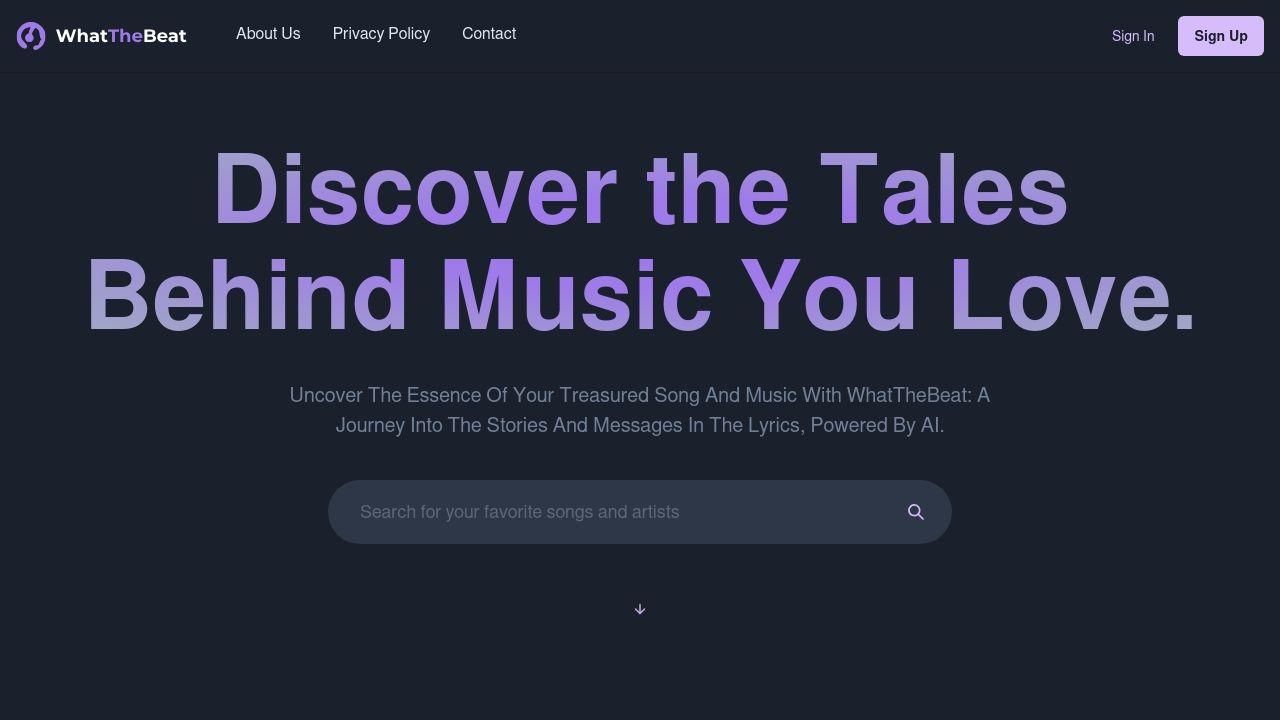Gone are the days of endlessly scrolling your digital music collection to piece together the perfect playlist. What if your media library could think for itself, understand your mood and preferences, and predict what you would love to listen to next?
Thanks to several AI tools, this isn't a futuristic fantasy. In this post, I go over several methods to leverage AI and transform how you interact with your music on your Android phone or iPhone.
Related 5 features YouTube Music should steal from the competition
Good artists copy, great artists steal
Posts 5 4 Tips for getting recommendations for new music Close
Before we dive into popular music tools, it's crucial to understand that the streaming platforms you use are powerhouse AI engines. Whether you use Spotify, YouTube Music, Amazon Music, Tidal, or Apple Music, they all offer a sophisticated AI at your fingertips. The key is to train it.
Whether it's Spotify's Discover Weekly, Apple Music's For You tab, or YouTube Music's Mixed for You section, they all rely on AI to show recommendations and create ready-to-use playlists. Here, every like, skip, save, or partial listen is data for the AI.
You need to be intentional with your interactions. For example, when you add a song or album to your personal library or a custom playlist, it tells the AI that this content is significant to you.
You can start small playlists of songs you love for specific moods. Your service uses these to suggest more. You can build a few small playlists for specific moods or activities, such as Morning Chill, Focus Work, High-Energy Workout, Dinner Party Jazz, and more. These playlists give the AI a clear starting point and context.
3 Spotify AI playlists Source: Spotify
Spotify doesn't need an introduction. The music streaming giant recently introduced the AI Playlist feature (currently in beta and rolling out to more Premium users globally), taking personalization to a new level.
Unlike traditional algorithmic playlists like Discover Weekly or Daily Mixes, which are based on your past listening habits, AI Playlist allows you to use natural language prompts to generate new playlists quickly. When you type a prompt into the AI Playlist chat interface, Spotify's AI uses Natural Language Processing (NLP) to understand your intent.
If it's available for your Premium account, use the steps below to create a playlist.
Launch Spotify and go to your library. Tap + at the top and select AI Playlist. Use one of the recommendations or enter a prompt (Energetic and motivational pop for a morning workout, Calming and ambient music for winding down before bed, Songs that make me feel like I'm in a nostalgic 90s teen movie, and more). Spotify suggests several tracks that match your preferences. You can review and delete irrelevant tracks. You can also add notes to refine the suggestions. For instance, you can tell Spotify AI to suggest tracks with more pop or less jazz. When your list is ready to use, tap Create at the top. 2 Soundiiz AI playlists
While Spotify and Apple Music each have a powerful AI for recommendations and playlist generation, tools like Soundiiz step in to offer a different, more versatile approach. It is mainly known as a comprehensive music transfer and synchronization service. However, it integrated a robust AI-powered playlist generator that works with your favorite music streaming service.
Soundiiz supports a vast number of services, including Spotify, Apple Music, YouTube Music, Deezer, TIDAL, Amazon Music, Qobuz, SoundCloud, Plex, Jellyfin, and more. You select your desired destination, and Soundiiz creates the AI-generated playlist within that service.
There are several ways to generate AI playlists. Tag mode allows you to select specific criteria from pre-defined categories. You can add tracks, genres, moods, and decades, and you are good to go.
Query mode is similar to how Spotify's AI Playlist works. You enter a natural language phrase (such as Intense workout EDM with a strong bassline) or keyword, and Soundiiz's AI interprets your request to generate a playlist.
Related 5 reasons I continue to pay for YouTube Music and Spotify
It isn't due to fiscal responsibility, that's for sure
Posts 4 1 PlaylistAI Close
The PlaylistAI app on iPhone (also available on the web and via ChatGPT integration) stands out as a dedicated AI playlist maker that goes beyond text prompts. It offers several unique ways to curate your listening experience.
You can connect Spotify, Apple Music, Amazon Music, or Deezer, and use AI text prompts to generate playlists quickly. If you use Spotify, PlaylistAI can access your listening history and generate playlists based on your top tracks and artists.
Stop searching, start listening
The days of static music libraries are behind us. Spotify has led the pack with the announcement of AI playlists, and I'm eager to see how YouTube Music, Amazon Music, and Apple Music come up with their own take.
This is just the beginning of what's possible. Pick your favorite tool from the list above and empower your music collection in no time. As for me, I will continue to rely on YouTube Music's excellent algorithm and recommendations to fill in my playlists in no time.


